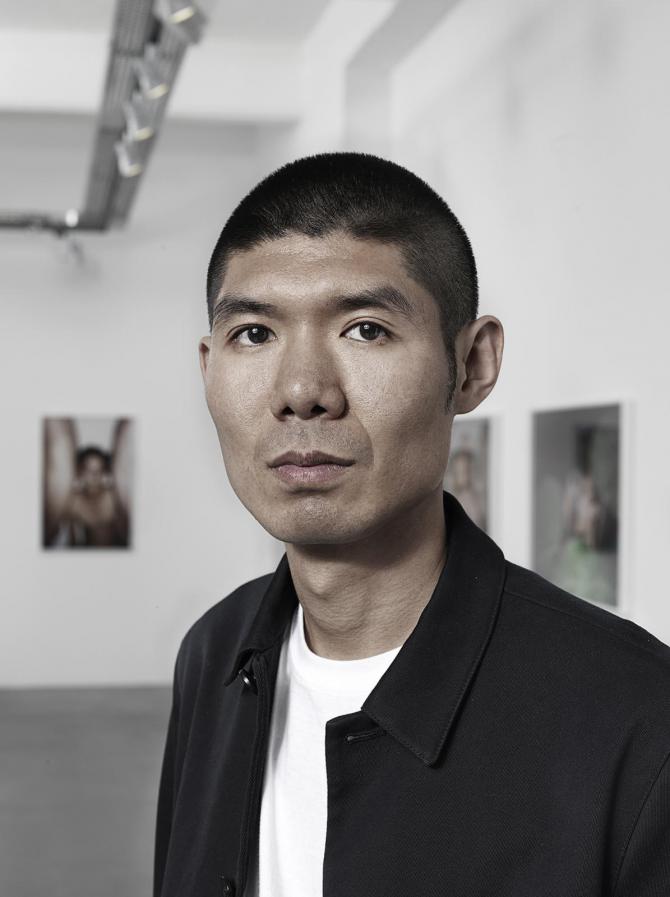A Belated Tribute to Ren Hang
Ren Hang’s work is extremely bold, potent, and mystical. It’s something that I look for in music, art, and inspiration. It’s like a vision that’s so strong that it has to work.
November 16, 2017
The photo down below is part of Ren’s work from 2008 to 2017. Ren died eight months ago, having struggling with depression for a couple of years. Through my eyes, his photos bring an escapist view into a world of warm, intoxicating and seductive colors, and an aesthetic of open vulnerability, sexiness, and beauty. The photo isn’t luscious in the sense of a lot of rich textures – the colors make the exposing photo lush, woozy, and almost surreal. It stems from the same principle of a lot of my favorite musical artists who create a world where their insides speak the clearest – it’s a microcosm of the artists’ own colors, textures and rules thanks to the blue pill. That’s a theme of Ren’s works, in my opinion.
Ai Weiwei, one of the leading political artists coming from China and a supporter of Ren’s work, explained Ren’s photos as a representation of China’s youth today – “Their works reflect the reality of China, today. The images are fresh, but also empty and superficial. They contain a deep sadness within” (TIME).
China’s past shows a very reserved, conservative, and respectful culture. There’s not much room for self-expression – famous artists back in China’s glory days of art, music, and especially calligraphy and poetry usually were commissioned by the government. Art, instead of a form of self-expression, which it usually was, was seen as a sign of national pride and vibrance – for example, Li Bai’s most celebrated works are usually about visiting China’s landscapes. That’s not to say that he didn’t write about his legendary life, but it was mostly because his works were in tune with Chinese culture at that time – drinking, tradition, and natural beauty.
Nowadays, China’s tradition is in a state of flux – there’s a huge pressure overseas and in the States to embrace Western culture – but it’s more than that. China has always submitted to the Western powers – since the Opium Wars in the 1800s, where Britain essentially extorted an entire country via the power of a plant because Britain couldn’t sell their shitty tea and other stuff toChina because they didn’t want it. Because of a single plant, China essentially turned from the most celebrated, colorful, innovative, and powerful power of the East to a culture that is merely copying or trying to play catch-up with the West. And in this, the culture and identity has been lost – Mao Zedong tried to destroy the old Chinese culture altogether, and the end of dynastic rule and the new Westernized economy power and the rise of the United States only helped to fuel the forest fire that spread, destroying China’s confidence, uniqueness, and identity. We’re only talking about culture – politics have been even more drastic.
Through the smoke, artists like Ai Weiwei and Ren Hang can rise and realize their own vision as lone wolves, at the expense of government intervention and conflict. These photos speak as an extension of China’s amazing history of art, but in this case, it also shows that art is continuing in a more experimental, bold, idiosyncratic, and controversial way.
Ren’s photos have always had a potent vision and a real vulnerability and vision to them. Most of his photos are NSFW and more experimental in nature – he uses his friends in ways that we would never imagine – but it’s part of something that’s usually concealed from everyday life, especially in China, where most everyone covers what happens behind doors with a more materialistic and bougie way of life, taken right from American culture. Ren and others from his movement are opposing that, looking at brute and personal expression of the parts that we’re usually afraid of showing.*




